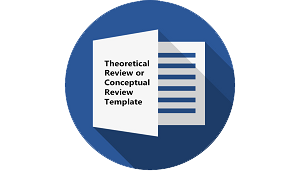Deixis Analysis on Zootopia Movie Script: A Pragmatic Study
DOI:
https://doi.org/10.30957/ijoltl.v6i3.682Keywords:
Deixis, Deictic, Spatial deixis, temporal deixis, ZootopiaAbstract
This research is motivated by an interest in literacy particularly the script of films. This study aims to analyze the types of deixis on Zootopia movie scripts. This study is designed by using the quantitative and qualitative descriptive approaches. The data used in this study was the script of Zootopia film. Entirely, this research only focusing on analyzing the types of deixis in every scene of the movie. In this film, there are 41 scenes but only 15 scenes were selected for data analysis. The data was presented in tables and used diagrams in providing the tendency of deixis used on Zootopia movie script. The results showed that types of person deixis were 83%, discourse deixis 8%, time deixis 7%, spatial deixis 2% while other types 8%. In conclusion, there are all types of deixis were found in the Zootopia movie script, especially the type of time deixis found in various kinds of temporal category as many as 29 expressions such as next time, tomorrow, today, before noon, later, ago, soon, once a month, since, three hundred days, sixty-five days, five years, six years and a thousand years.
Downloads
References
Bauer, A. H. (2013). Morphosyntax of the Noun Phrase in Hieroglyphic Luwian (Vol. 12). Leiden: Brill. https://doi.org/10.1017/CBO9781107415324.004
Birner, B. J. (2013). Introduction to Pragmatics (1 edition). Oxford: Wiley-Blackwell.
Cornish, F. (2011). “Strict†anadeixis, discourse deixis and text structuring. Language Sciences, 33(5), 753–767. https://doi.org/10.1016/j.langsci.2011.01.001
Creswell, J. W., & Creswell, J. D. (2018). Research Design: Qualitative, Quantitative, and Mixed Methods Approaches (5th ed.). London: SAGE Publications, Inc. https://doi.org/10.1017/CBO9781107415324.004
Crystal, D. (2008). A Dictionary of Linguistics and Phonetics. USA: Blackwell Publishing. https://doi.org/10.1353/lan.2004.0038
Cutting, J. (2002). Pragmatics and Discourse: A Resource Book for Students. London: Routledge.
Davidson, D., & Harman, G. (1976). Semantics of Natural Language (2nd ed., Vol. 26). Boston: D. Reidel Publishing Company, Inc. https://doi.org/10.2307/2218877
Decker, R. J. (2001). Temporal Deixis of the Greek Verb in the Gospel of Mark with Reference to Verbal Aspect (Vol. 10). New York: PETER LANG.
Gay, L. R., Mills, G. E., & Peter W, A. (2012). Educational Research: Competencies for Analysis and Applications (10 Edition). Boston: Pearson.
Giaxoglou, K. (2015). “Everywhere I go, you’re going with meâ€: Time and space deixis as affective positioning resources in shared moments of digital mourning. Discourse, Context and Media, 9, 55–63. https://doi.org/10.1016/j.dcm.2015.06.004
Green, K. (2006). Deixis and Anaphora: Pragmatic Approaches. Encyclopedia of Language & Linguistics, (1918), 415–417. https://doi.org/10.1016/B0-08-044854-2/00328-X
Hanks, W. F. (2009). Fieldwork on deixis. Journal of Pragmatics, 41(1), 10–24. https://doi.org/10.1016/j.pragma.2008.09.003
Kragh, K. J., & Lindschouw, J. (2013). Deixis and Pronouns in Romance Languages (Vol. 136). Amsterdam: John Benjamins Publishing Company. https://doi.org/10.1017/CBO9781107415324.004
Levinson, S. C. (1983). Pragmatics -. Cambridge: Cambridge University Press.
Lyons, J. (1979). Semantics. Semantics (Vol. 2). Cambridge: Cambridge University Press. https://doi.org/10.1017/cbo9781139165693
Macrae, A. (2019). Discourse Deixis in Metafiction: The Language of Metanarration, Metalepsis and Disnarration. Discourse Deixis in Metafiction. New York: Routledge. https://doi.org/10.4324/9780429030352
Michael, L., & Granadillo, T. (2014). Negation in Arawak Languages (Vol. 6). Leiden: Brill. https://doi.org/10.1017/CBO9781107415324.004
Mukaromah. (2008). Tindak Tindak Pragmatik Anak Usia Prasekolah Dwibahasawan Jawa-Indonesia. Litera, 7(1). https://doi.org/10.21831/ltr.v7i1.4876
Quirk, R., Greenbaum, S., Leech, G., & Svartvik, J. (1985). A Comprehensive Grammar of the English Language. London: Longman. https://doi.org/10.1075/eww.8.1.10wei
Ruthrof, H. (2015). Implicit deixis. Language Sciences, 47(PA), 107–116. https://doi.org/10.1016/j.langsci.2014.09.003
Sebeok, T. A. (2001). Signs: An introduction to semiotics. Journal of Pragmatics (2nd ed., Vol. 26). Toronto: Univeristy of Toronto Press. https://doi.org/10.1016/0378-2166(96)82062-5
Stukenbrock, A. (2014). Pointing to an “empty†space: Deixis am Phantasma in face-to-face interaction. Journal of Pragmatics, 74, 70–93. https://doi.org/10.1016/j.pragma.2014.08.001
Wikipedia. (n.d.). https://zootopia.fandom.com/wiki/Zootopia/Transcript. Retrieved from https://zootopia.fandom.com/wiki/Zootopia/Transcript
Yule, G. (1996). Pragmatics. Pragmatic. USA: Oxford University Press.
Yule, G. (2010). The Study of Language (4 Edition). New York: Cambridge University Press.
Zupnik, Y.-J. (1994). A pragmatic analysis of the use of person deixis in political discourse. Journal of Pragmatics, 21, 339–383.
Downloads
Published
How to Cite
Issue
Section
License
Authors who publish with this journal agree to the following terms:
- Authors retain copyright and grant the journal right of first publication with the work simultaneously licensed under a Creative Commons Attribution-ShareAlike 4.0 International License that allows others to share the work with an acknowledgement of the work's authorship and initial publication in this journal.
- Authors are able to enter into separate, additional contractual arrangements for the non-exclusive distribution of the journal's published version of the work (e.g., post it to an institutional repository or publish it in a book), with an acknowledgement of its initial publication in this journal.
- Authors are permitted and encouraged to post their work online (e.g., in institutional repositories or on their website) prior to and during the submission process, as it can lead to productive exchanges, as well as earlier and greater citation of published work (See The Effect of Open Access).












